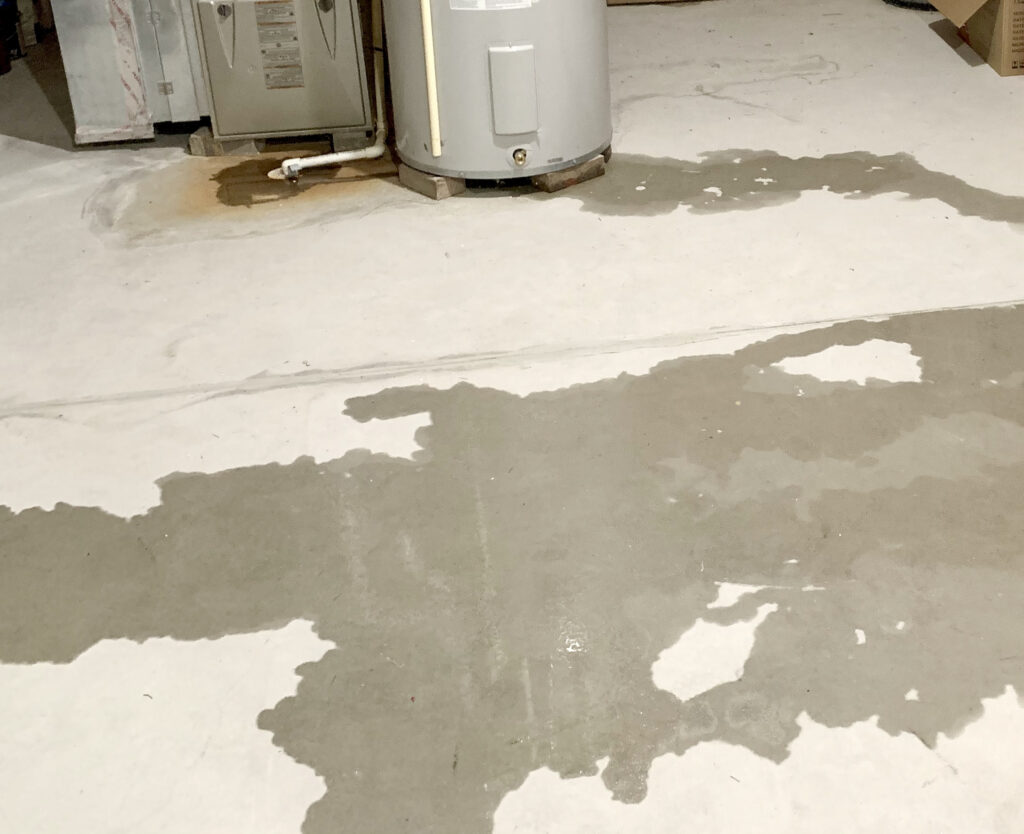How To Identify And Detect A Slab Leak
What Is a Slab Leak?
A slab leak occurs when your plumbing system leaks under the concrete slab foundation because of age or damage. A water leak can work its way up through cracks in the concrete slab, and if it’s not detected, goes ignored, or isn’t properly and promptly addressed, it can damage your foundation as well as the structure of your home.

Many homes in the Dallas-Fort Worth metroplex are built on a concrete foundation, also known as a concrete slab, with the plumbing system and water lines running below. While it may seem that these pipes and lines are well protected so far beneath the floor of your home, it’s not quite that simple: The copper pipes beneath the foundation of your home can experience corrosion or degradation due to friction with soil, concrete, nearby pipes, or gravel. High water pressure and poor pipe installation can also be likely causes of long-term pipe corrosion.
How to Detect a Slab Leak
As a North Texan homeowner it may be difficult to identify slab leaks on your own, look out for the following signs to determine if your home has a slab leak:
- You hear running water although all water faucets in the house are off.
- You notice a sharp rise in your water bill.
- You start to see puddles of water in or around your home.
- You notice wet carpets, baseboards, or floors.
- You notice visible signs and/or the smell of mold or mildew.
- You have noticeable cracks along your foundation, around the slab, or cracks in your walls.
- You have decreased water pressure, especially when no fixtures are being used.
The Risks If Your Slab Leak Is Ignored
There are several risks involved if you left a slab a leak uncared for. First of all, a slab leak presents a major health concern. Leaking water eventually leads to mold that you and your family would breathe in and be exposed to for an extended period, causing some serious respiratory issues.
In addition to the health liability of mold impacting your family’s health, a leaking foundation can cause structural problems to your home. If left uncared for, a slab leak can start to rot, which makes your home’s structure vulnerable to shifting, buckling, and cracking. Leaving a foundation leak unrepaired only worsens the initial problem.
Repairing a Slab Leak
If you notice signs of a slab leak, you must first determine if the issue at hand is truly a slab leak. For many reasons, it’s extremely difficult for homeowners to try and fix these types of leaks themselves. You should confirm whether or not you have a damaged underground pipe from a licensed plumber. There’s no need to break the foundation open to do this, as modern technology allows for accurate, non-destructive slab leak detection.
Once the source has been uncovered, a professional plumber will be able to use one of two options to access the broken pipe ― digging a tunnel under your house large enough for the plumber to crawl through and access the broken pipe(s) or jackhammering through the concrete of your home’s foundation.
If you have experienced a leak for a long time, then there’s a chance that it could have caused a serious problem with your foundation beyond a plumbing issue. If there is significant corrosion in copper or iron pipes, Staggs Plumbing will replace sections of pipes to avoid further degradation. We will uncover a major slab leak that might have impacted the structural integrity of your home and can determine if you need to relevel your foundation or take other actions to fix your home’s structure.
Staggs Plumbing Can Locate and Fix Slab Leaks
Detecting a slab leak on your property can be extremely troublesome. When you contact Staggs Plumbing, our plumbers will use a variety of equipment and state-of-the-art tools to pinpoint the leak and recommend the best cost-effective solutions on how to move forward. As a family-run business with an A+ rating with the Better Business Bureau, we are a trustworthy, highly respected company that values our customer’s needs and concerns.


